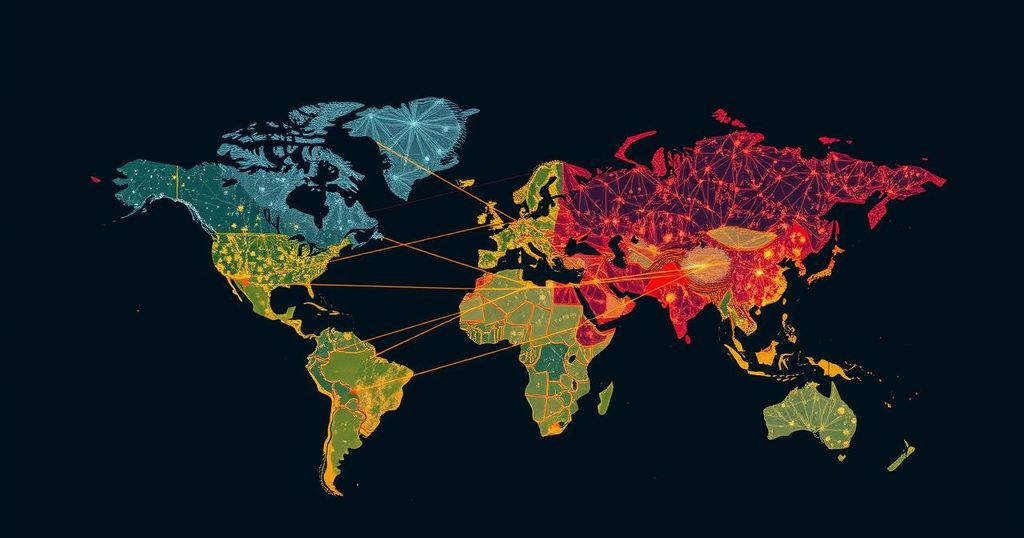The Alarming Connection Between Climate Change and Authoritarianism

This article explores the disturbing correlation between climate change and the rise of authoritarianism. It highlights how leaders like Rodrigo Duterte in the Philippines have exploited natural disasters to consolidate power, leading to a decline in democratic governance. Research shows that severe storms can decrease democracy scores in affected countries, and psychological studies indicate that climate-related anxiety may push individuals toward authoritarian figures. Despite these trends, experts advocate for proactive democratic responses and collective action to address the challenges posed by climate change.
The intersection of climate change and authoritarianism has become increasingly evident as political analysis illuminates the mechanisms through which environmental crises may facilitate autocratic governance. A historical lens reveals how natural disasters, such as Typhoon Yolanda in the Philippines in 2013, have provided opportunities for leaders like Rodrigo Duterte to exploit societal vulnerability for political gain. The aftermath of Typhoon Yolanda, which resulted in extensive fatalities and devastation, allowed Duterte to position himself as a decisive leader, leading a campaign of violence against alleged looters and consolidating support through promises of order amidst chaos. This pattern of leveraging fear and discontent following ecological disasters is not isolated to the Philippines; a global trend presents a disturbing picture of leaders who rise amidst such turmoil by undermining democratic institutions and scapegoating vulnerable populations. In various countries, leaders have polarized societies to secure their power amidst climate-induced crises. For instance, in India, Prime Minister Narendra Modi has utilized nationalism to vilify Muslim populations, while in Brazil, Jair Bolsonaro has targeted Indigenous communities. The political climate in the United States has not been immune either, as exhibited by the actions of former President Donald Trump, who fostered divisive rhetoric during crises including those exacerbated by climate change. Research has illuminated that days of natural disasters can correlate with a degradation of democratic practices, with storms leading to significant declines in democratic governance. A study focusing on island nations has quantified this degradation, observing an average decrease of 4.25% in democracy scores in the wake of severe storms. This research posits the emergence of what some scholars deem “storm autocracies,” where the likelihood of dictatorship increases in direct response to climate-induced disasters. Psychological studies complement these findings by demonstrating that exposure to climate change threats can lead individuals to adopt authoritarian tendencies, often manifesting as negative attitudes toward marginalized groups. Though the relationship between voter behavior and authoritarian support remains complex, it is evident that the societal anxiety stemming from climate change can propel individuals toward seeking strong leadership. Despite these disturbing trends, experts emphasize that responses to climate change are not predetermined to lead to autocracy. They advocate for proactive measures to bolster democratic resilience, highlighting that the political landscape is malleable. Collective action, informed by a vision for justice and environmental care, could inspire a shift away from authoritarianism. Ultimately, the dialogue surrounding climate change and authoritarianism must recognize the agency of individuals in shaping political outcomes. Amid growing threats to democracy, it remains critical to advocate for inclusive and equitable policies while actively engaging in collective movements to challenge the rise of strongman politics fueled by societal vulnerabilities.
The article discusses the alarming correlation between climate change and the rise of authoritarian regimes, highlighting how environmental crises can pave pathways for autocrats to gain power. The historical example of Super Typhoon Yolanda in the Philippines illustrates how leaders may exploit natural disasters to consolidate control and diminish democratic norms. Emerging research indicates that severe climate events can trigger a decline in democratic governance, contributing to a global trend of authoritarianism. Furthermore, psychological insights reveal how the fear and anxiety stemming from climate change can push societies toward favoring authoritarian figures, albeit not uniformly across all political contexts. The discourse underscores the need for a proactive response to climate challenges that strengthens democratic institutions and mobilizes collective action for change.
In conclusion, the link between climate change and authoritarianism suggests a troubling dynamic wherein environmental crises can undermine democratic systems and empower autocratic leaders. The case of Rodrigo Duterte serves as a stark reminder of this phenomenon, as well as its implications for various countries encountering similar challenges. To navigate this precarious landscape, societal resilience rooted in democratic ideals, collective action, and proactive governance is essential to mitigate the threats posed by climate change and uphold democratic values in the face of rising autocracy.
Original Source: www.fastcompany.com








